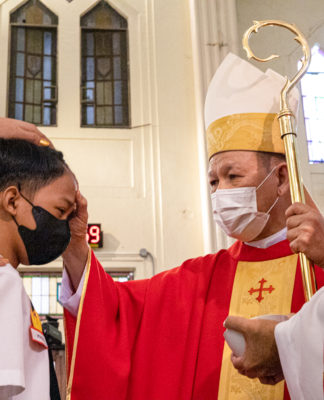ARE FILIPINOS overseas exploited because of too much pakikisama?
Rob Walsh, communication professor at Valley City State University in North Dakota, encouraged Filipinos not to set aside their cultural values just because they want to remain in good terms with people of other races.
In his lecture at the Thomas Aquinas Research Complex last July 26 as part of the 75th anniversary of the Graduate School, Walsh described pakikisama as like the Filipino saying, “Please, let’s get along” in a disagreement with an American.
This behavior can lead to “conflict escalation” as it multiplies issues, harbors accusations and threats, and increases the number of people involved in the disagreement, he said in his lecture titled “Pakikisama: Wisdom from East and West.”
“[I realized] that no matter how hard I saw myself or other foreigners push, oftentimes Filipinos would just absorb the impact of that and not respond. And I was wondering why. It has to be something cultural,” Walsh told the Varsitarian. “I ask [Filipinos] to make decisions based on your values, so that you’re not always [going] against who you are in order to get what you want.”
Walsh added: “An American is very direct. So they will assume that when they’re being direct, the other person will be direct as well. Filipinos can lose hold of something as a result of not standing up for themselves in a foreign [context],” he said. “What happens in conflict generally, especially in the West, is we try to get people on our side.”
However, Filipinos should understand cultural differences instead of completely disregarding the practice of pakikisama, he said.
“[H]ave [pakikisama] remain as part of [Filipino] culture but also understand how pakikisama can be something that might end up with Filipinos not getting what they want elsewhere,” said Walsh.













